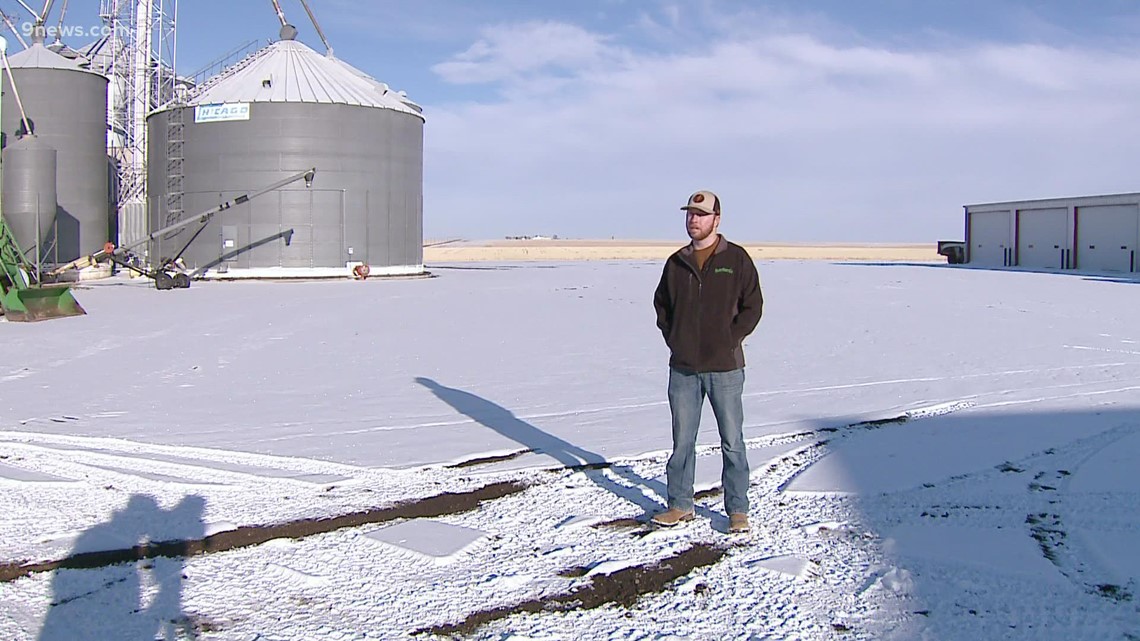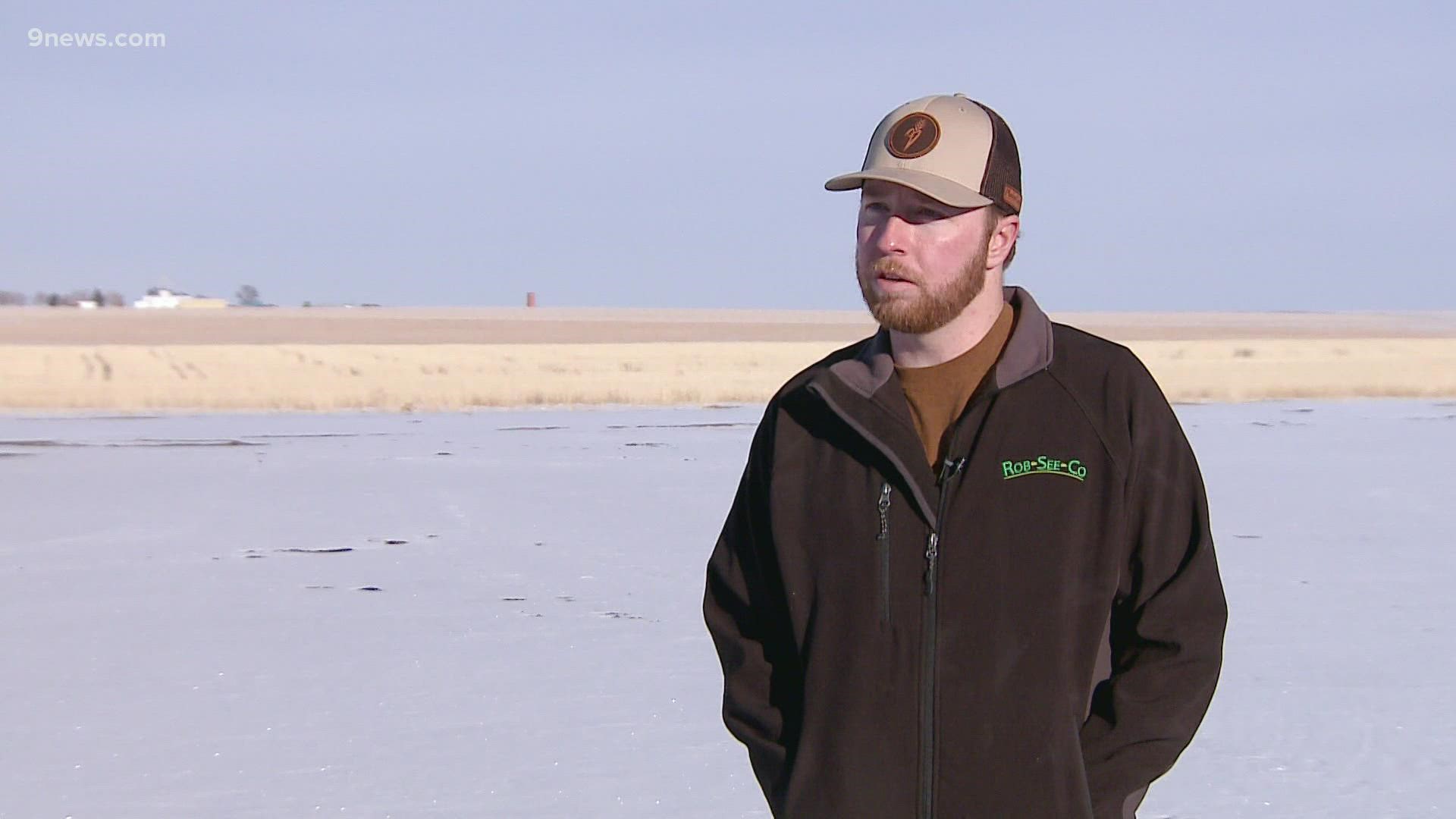KEENESBURG, Colo. — The rising cost of wheat is leading people to pay more for a loaf of bread. But when you ask Colorado farmers why consumers are spending more for food, the answer is complicated.
"We have to pay more for everything that we do," said Justin Lewton with Lewton farms in Keenesburg. "We pay more for labor, we pay more for insurance, we pay more for fuel, we pay more for energy."
Colorado’s Eastern Plains have long been home for Lewton Farms. But farming is getting harder and more expensive.
"Great-grandpa moved out here in 1919, so this is 103 years this year," Lewton said. "A combine in the ’70s was $70,000. Right now, you’re not going to get one for $400,000."
Lewton is the Vice President of the Colorado Wheat Growers Association. When it comes to farming, he knows his stuff.
While headlines show the cost of wheat rising because of the war in Ukraine, there’s a lot more that goes into the equation. The price for gas is also just part of it.


"It’s not just that you took a 50 cent increase on gasoline prices or diesel prices. That’s happened in every portion of the supply chain all the way through," Lewton said. "If we can get away with just doubling our expenses, we’re going to be very fortunate."
As recently as a year ago, farmers like Lewton could make a gross income of about 5 cents for every loaf of bread sold with their product. Now it’s up to 13 cents per loaf. But all the other rising costs mean farmers aren’t seeing bigger profits.
Supply chain issues, inflation, gas prices and even a war all play a role in how much the bread costs at the store.
Russia and Ukraine are two of the biggest wheat producers in the world. Russia also produces a large amount of fertilizer that farmers all across the country use. That could change with new sanctions against Russia.
"Everything stacks on top of something else," Lewton said. "And it’s not just one thing on top of another. It’s exponential."
SUGGESTED VIDEOS: Latest from 9NEWS

